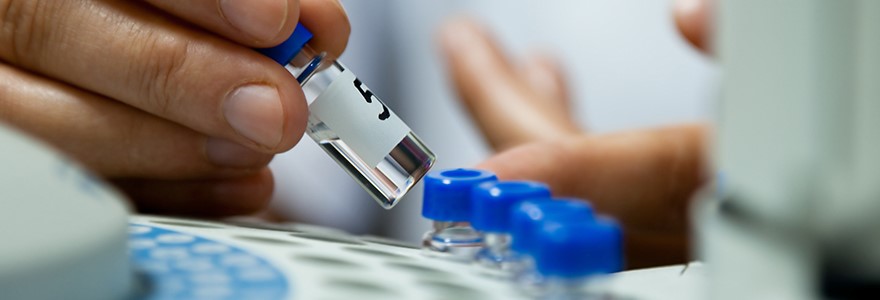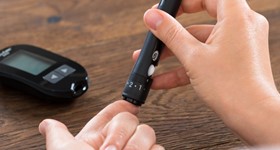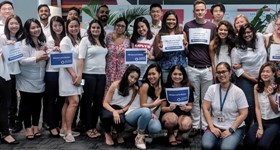With Singaporeans taking greater charge of their health, what is the impact on the healthcare industry?

Singapore is one of the world’s leading health hub with its integration of state-of-the-art technology in its journey to become a full-fledged Smart Nation. This have altered the ways in which its society has functioned with an increasing number of Singaporeans being equipped with the relevant technological skills to undertake an active role in managing their health. Self-monitoring of health would not be possible without Singapore’s Smart Nation efforts to foster greater willingness of its population to keep up with technological health trends amidst the rapid digitisation of its healthcare system.
Attitude towards ownership of health amongst Singaporeans
Accenture’s 2016 report "Innovation-Powered Healthcare in Asia Pacific" noted that 78% of Singaporeans are more likely to take charge of their own health, compared to Australia (75%) and Japan (40%) who are relatively less keen to do so (Source: Accenture). Hence, these figures show that majority of Singaporeans would prefer to take ownership of their health whilst technology is key to facilitate this independent self-monitoring.
Although pessimism within the health care sector in embracing Artificial Intelligence (AI) continues to persist in the Asia-Pacific region, Accenture also reported that 4 out of 5 Singaporeans said they would use a virtual assistant to improve their quality of health and standards of living – a solution that draws on advances in AI to help a consumer manage more of their healthcare themselves. Virtual assistants not only identify the out-of-pocket costs for a treatment, but also help to find the right treatment option, or manage an appointment and even referrals.
With productivity and efficiency being the main concern within the provision of healthcare, 57% of Singaporeans are willing to pay for a home health-monitoring kit if it means that they were able to be provided with faster access to treatment (Source: Accenture).
Although the overall healthcare attitude survey in Singapore highlighted a higher number of people who are willing to proactively take charge of their medical needs, this needs to come hand-in-hand with the adoption of electronic health systems such as the National Electronic Health Record (NEHR) system, HealthHub and other health applications on mobile.
Early digitisation of health in Singapore
1. National Electronic Health Record (NEHR)
Rolled out in 2011, NEHR prepared the nation early for electronic handling of health records and e-services although mass adoption was not consistent. The system is only used by public hospitals and polyclinics, excluding private clinics which provide 80% of the country’s primary healthcare services. While a few private clinics joined the initiative in 2013, the remaining healthcare players are still highly encouraged to link up to the NEHR. This ensures that doctors are able to access data on patients who may have been treated elsewhere, with the ability to gain full information on the treatments that the patient had undergone as well as the test results received. It is ideal that the NEHR provides a holistic picture of a patient’s health than patients themselves provide. While more than 760,000 NEHR patient searches are made monthly by 21,000 doctors, nurses and pharmacists, the current data is not as comprehensive as Health Minister Gan Kim Yong aimed for (Source: The Straits Times).
Currently, the private sector still operates in silos which is counter-effective in tackling patients who would require the attention of more than one specialist. This calls for an increase of private clinics to digitise records on the NEHR.
Besides benefitting patients, a comprehensive databank of diseases, treatments and patient outcomes will also serve as an information-rich resource that could lead to better and cheaper treatments.
2. HealthHub
HealthHub.sg is designed to empower Singaporeans to take greater ownership of their health and wellness through the online access of personalised health records, better health literacy and adoption of healthy lifestyle practices. The site provides up-to-date health content, health services, personal health records and management and even a community-like marketplace which serves as a source of community support and care services. This is a user-friendly mobile application and website, aiming to encourage those who are well to adopt healthy lifestyle practices, whilst provide those who have health conditions with tools to self-manage their conditions and most importantly, equip individuals who care for others in an informal capacity with the necessary information and tools.
Health portals like HealthHub has proven its value to the Singapore audience as it experiences a rising trend.
This also suggests a greater demand for access to doctors and skilled specialists who will be able to attend to the growing needs of patients in Singapore.
Greater urgency in meeting current demands
Patients now want easier and better access to doctors. This means that they no longer want to travel to a neighbourhood polyclinic given their decreased willingness in spending long waiting hours for a doctor or specialist.
In fact, Singaporeans are now interested in an integrated healthcare platform that connects healthcare providers all over the world, and is able to map a patient’s medical journey for ease of tracking as mentioned above.
This however, also suggests the importance for healthcare workers to be technologically-savvy and the ability to use these portals and applications to attend to the needs of their e-patients.
Thus, demand is expected to shift from institution-based care towards home and community care. This will be further supported with upcoming launches of online platforms of healthcare such as monitoring platforms for vital signs which will allow remote monitoring of patients' vital signs including blood pressure, blood glucose or weight of patients with conditions such as hypertension, diabetes, and heart or pulmonary diseases. Patients can, in turn, receive more timely advice and intervention to manage their condition without having to schedule an appointment to visit the hospital, according to the Health Minister.
By the end of the year, all Singaporeans can use a new application (Health MarketPlace) to call for a nurse and order home care supplies, Health Minister Gan Kim Yong announced on Tuesday (May 30) (Source: CNA).
The life expectancy for Singaporeans has gone up as consumers becoming increasingly engaged with their own health through the recognition of a long and more importantly, quality life. Additionally, as Singapore’s population ages, the nation will then face tighter labour constraints alongside a rising demand for healthcare services. Healthcare providers on the other hand, will have to shift their focus towards heightening productivity levels and improving operational efficiency to be able to continue delivering quality care to patients.
It is predicted that in less than 10 years, Singapore could join more than 30 countries in becoming a "super-aged" nation, where 20% of the population is 65 years of age or older (Source: CNA).
The Health Ministry also expects that 9,000 additional staff will be needed to support its public healthcare and elderly care settings in the next three years. Half of those positions will include nursing, therapy and administrative jobs.
In terms of health services, the chart below illustrates a breakdown of the current demand of Singaporeans, with waiting time ranked highest followed by out-of-pocket costs and lastly, opening hours of clinics.
If you would like to find out more, please kindly contact Lausanne Lau at l.lau@realstaffing.com or follow us on our LinkedIn page or follow our LinkedIn page for more industry updates.




